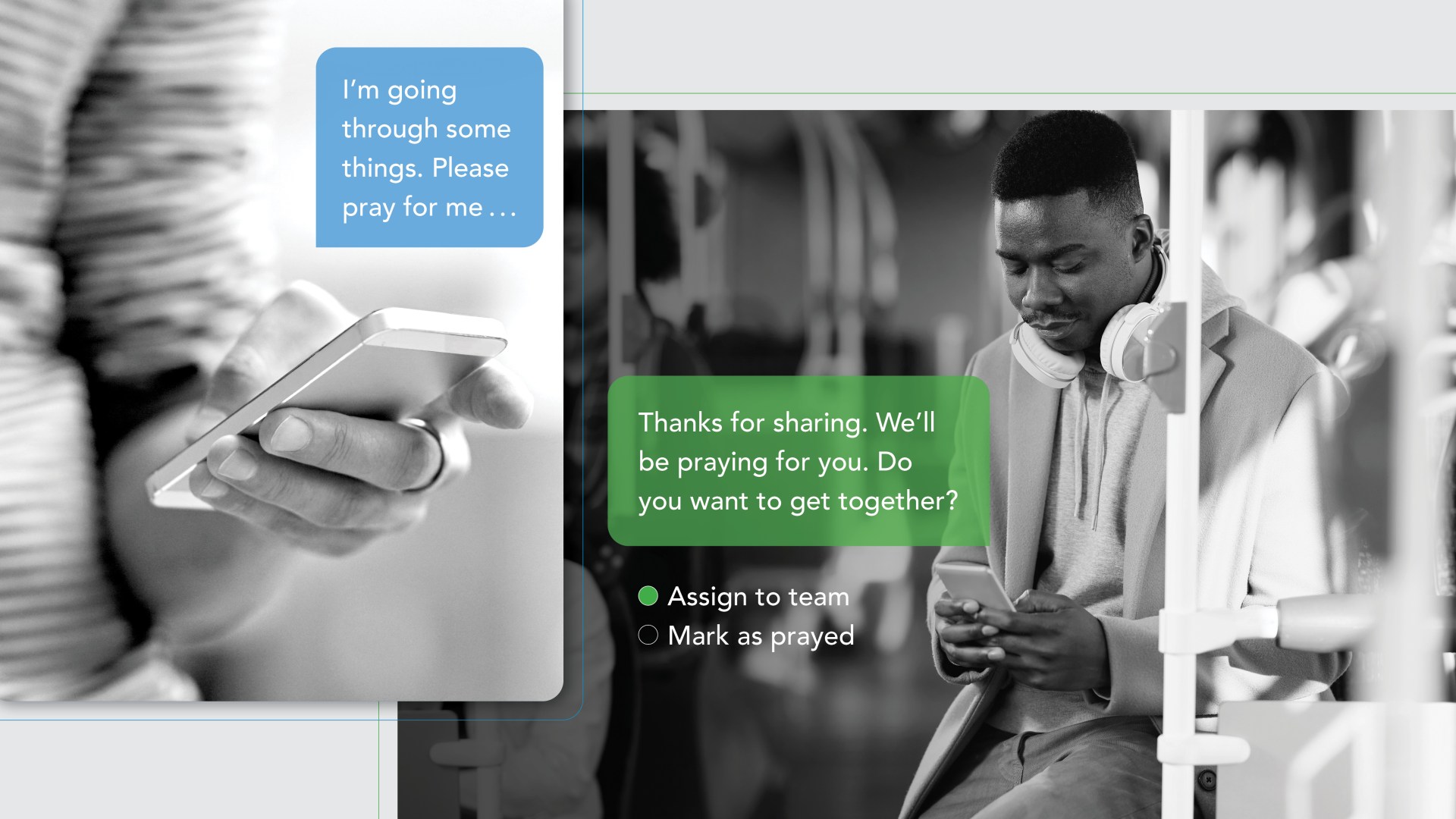Despite news of declining church attendance and denominational splits, pastors should feel encouraged. We sat down with Devon Kline to unpack why.
As a leader at Gloo, a tech company specializing in communication between churches and people, Kline spends her days immersed in trends about faith in America, specializing in communications between churches and people who want to learn more about Jesus. According to Kline, research shows that a large number of faith-curious people (Explorers) are open to building relationships with individual Christians.
Gloo’s platform acts as a connection switchboard to make that happen, empowering pastors and outreach volunteers and facilitating over 400 daily connections between Explorers and churches through digital ads. Based on a deep dive into these connections, Kline sees five ways ministry leaders can build an authentic rapport with Explorers, with or without Gloo.
1. Start with People, Not Places.
Kline says Explorers are seeking relationships—with the person next door and with Jesus, too. In fact, research shows rising spiritual openness in America, along with increasing receptivity to the person of Jesus.
Gloo’s latest partnership with He Gets Us speaks to these trends. Their videos depicting a relatable Jesus have been viewed over 474 million times, and over 123,000 people have requested more information. From there, Gloo connects the requesting Explorer with a nearby church responder at one of nearly 23,000 churches. The pastor or a church volunteer responds in a personalized way, sending a text message offering encouragement, prayer, or other relevant ways to serve the Explorer.
The takeaway? As you’re communicating with visitors and building relationships in your community, focus on the individual and their present needs, not what they might contribute in the future.
2. Make a Personal Connection.
While the intention of responding church leaders is squarely focused on serving the needs of Explorers, not all responses are created equal. Kline notes that when a pastor’s first response is to invite an Explorer to church, it may not lead to the authentic connection they’re hoping for—or even any response at all. But there are messages that elicit a much higher response rate. Kline suggests that faith leaders focus on building a personal connection: “Hi, this is John Smith from Calvary Church here in Louisville, Kentucky. I’m praying for you as you struggle with loneliness. Would you like to have a phone call, continue texting, or find a time to get together?”
Similarly, “Ads that speak specifically to the felt need of people have been the highest performing,” says Kline. “‘Are you having a hard time with relationships?’ or ‘Are you feeling lonely?’ or ‘Are you struggling with finances?’ connect better than the generic, ‘Come to our church.’”
Ministry leaders might consider which felt needs their church is well suited to address and then cater their outreach messaging and materials accordingly. If a church has a thriving marriage ministry, for example, creating resources that offer help navigating relational conflict could be a place to start.
3. Catch More Eyes with Relatable Images.
The black-and-white images of the He Gets Us campaign depict real people, raw emotion, and resonant experiences. Paired with simple, straightforward messages, the ads serve as an example for pastors who want to engage their communities in a way that presents a realistic impression of their church.
Whether creating digital ads, designing an event invitation, or engaging in a simple face-to-face interaction—Kline says ministry leaders should prioritize relatable language and authentic images or videos.
4. Flip the Outreach Script.
Where door-to-door evangelism relies on the church going into the community, when Explorers engage with a church’s material online, they are knocking on the doors of local congregations. “Those who are responding to digital content are coming toward the church,” says Kline.
This could expand to include physical signs, community events, or even posters left in local coffeehouses. Each of these has the potential to reach Explorers and highlight a church’s most valuable asset: its desire to serve through its people.
Exploration is a journey, Kline explains, not a destination. The path often looks like having multiple interactions, building trust, and developing a relationship. People want to feel safe and cared for, and that takes time. So whether it’s over the course of days or weeks or years, every text, every touchpoint, is an opportunity to show an Explorer what a life shaped by the gospel looks like.
5. Response Times Matter.
The most important tip? As people reach out to you—whether through a digital ad, by filling out a visitor card, or simply because they associate the idea of a local church pastor with someone who could help—it’s important to respond with a level of urgency. People who are reaching out are often doing so out of immediate need. Our high-tech world has increased our expectations for efficiency, and answering quickly establishes trust and credibility.
Aim for responding to inquiries, especially when an Explorer first makes contact, within 24 hours or less. As people reach out with their specific needs, responding in real-time can make all the difference in developing a meaningful and authentic connection that turns into an opportunity to journey together.
Returning to Your First Love: Caring for People
Digital ads are helping the faith-curious connect with pastors and church leaders in their community. Leaders who are passionate about outreach, but feel burdened by the idea of running outreach campaigns on their own, are turning to Gloo for help. With world-class campaigns and innovative technology, Gloo brings together church leaders and their communities. Pastors should be able to focus on what they do best: caring for people and introducing them to a caring and loving church community.
If you’re curious about how Gloo can help connect your church with Explorers, learn more about their free programs, which are sponsored by kingdom-minded donors and cost nothing to join.
Posted


